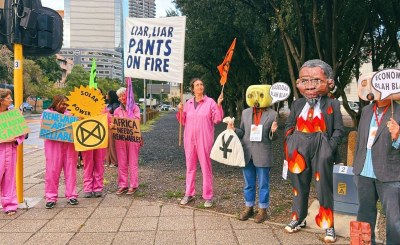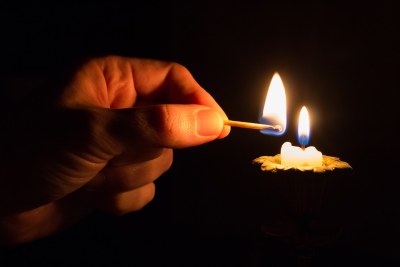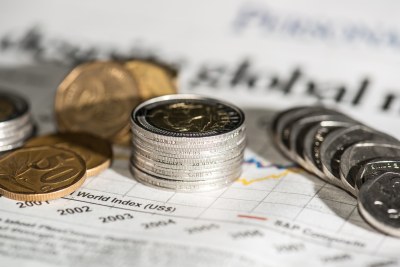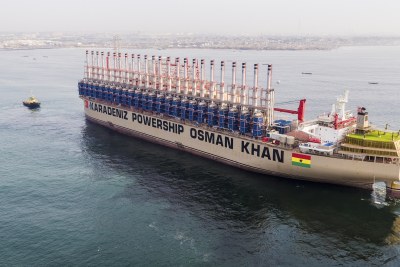-
South Africa: Govt Discusses 'Emergency' Shortening of Karpowership Contracts
allAfrica, 31 May 2023
According to Rudi Dicks, head of the project management office in the Presidency and member of the National Energy Crisis Committee, government is discussing the possibility of… Read more »
-
South Africa: Saldanha Harbour Powerships Plan 'Fatally Flawed', Says Environmental Affairs
Daily Maverick, 1 June 2023
The department of environmental affairs said Karpowership's environmental impact assessment application for Saldanha was deemed to have been withdrawn and the application was now… Read more »
-
South Africa: 'Add Those Megawatts' - Ramaphosa Backs Karpowership and Slowing Down Coal Power Plant Decommissioning
Daily Maverick, 12 May 2023
President Cyril Ramaphosa has signalled his support for the controversial Karpowership emergency power deal, saying that was 'the way to go right now to add those megawatts'. He… Read more »
-
South Africa: Transport Minister Flipped an 'Ace' Card in the Karpowership Poker Saga, but Does He Have a Winning Hand?
Daily Maverick, 4 June 2023
Unperturbed by the concerns of the national harbour authority planners, former Transport Minister Fikile Mbalula signed a special directive ordering Transnet chief executive Pepi… Read more »
-
Mozambique: - Eskom to Buy Electricity From Karpowership Via Mozambique
AIM, 31 March 2023
The South African state company Eskom is in talks with the Mozambican publicly owned electricity company, EDM, for buying the output from a 415 Megawatt Karpowership power station,… Read more »
-
South Africa: 'Misleading' Claims and Transnet Fear Over Harbour Space Derail Karpowership Plans for Now
Daily Maverick, 14 March 2023
Karpowership's plan to park three large ships in Coega harbour has been derailed - for now. Not for environmental reasons, but because Transnet wants to build a new liquid bulk… Read more »
Shortening of Karpowership Contracts on the Cards in South Africa
Since 2010, Karpowership, a Turkish power producing firm, has been using off-shore ships as floating gas power plants. The company contracts to provide countries with power extends up to 20 years. With South Africa looking to Kapowership to assist with its load shedding crisis, concerns have been raised at the cost and the length of time of the contracts, as well as its impact on the environment.
According to Rudi Dicks, head of the project management office in the Presidency and member of the National Energy Crisis Committee, the government is discussing the possibility of reducing the term for Karpowership contracts as an "emergency' measure". Dicks called for contracts of potentially five to ten years would be preferable to the initial term of 20 years. This follows a comment by Electricity Minister Kgosientsho Ramokgopa who recently said that contracts with emergency power producers should not last longer than three to five years.
Despite being named as a preferred bidder in government's Risk Mitigation Independent Power Producer Procurement Programme in 2021 to provide over 1,200MW of power at at three of South African ports, Karpowership has also drawn criticism over its refusal of environmental authorisation for its three vessels at the selected docking sites of Richards Bay in KwaZulu-Natal province, Ngqura in the Eastern Cape province and Saldanha Bay in the Western Cape province.
The Karpowership deal is aimed to lessen the impact of load shedding on the country which has affected the economy, most notably small businesses, with up to 64% of township small businesses stopping operations during scheduled power cuts.
InFocus
-
According to Scrolla, power utility Eskom failed to disclose that South Africa was plunged into Stage 8 load shedding last week. The embattled power utility then ann Read more »
-
The Treasury has withdrawn the decision which allowed Eskom to forego reporting irregular or wasteful expenditure. According to Finance Minister Enoch Godongwana, the decision was ... Read more »
-
South Africa faces an uphill battle to keep the lights on, with energy supplier Eskom's past mismanagement, misspent funds and ageing infrastructure the reasons for the country's ... Read more »
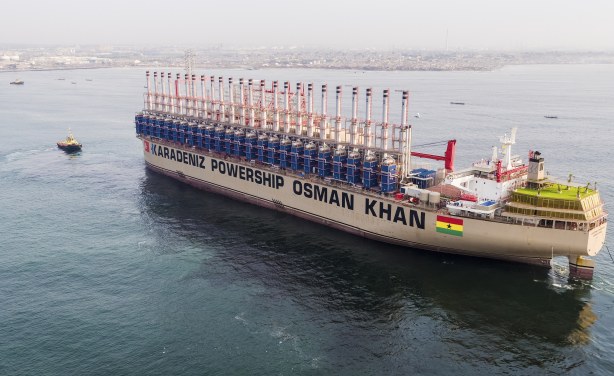
The Karadeniz powership Osman Khan, which supplies electricity in Ghana (file photo).
